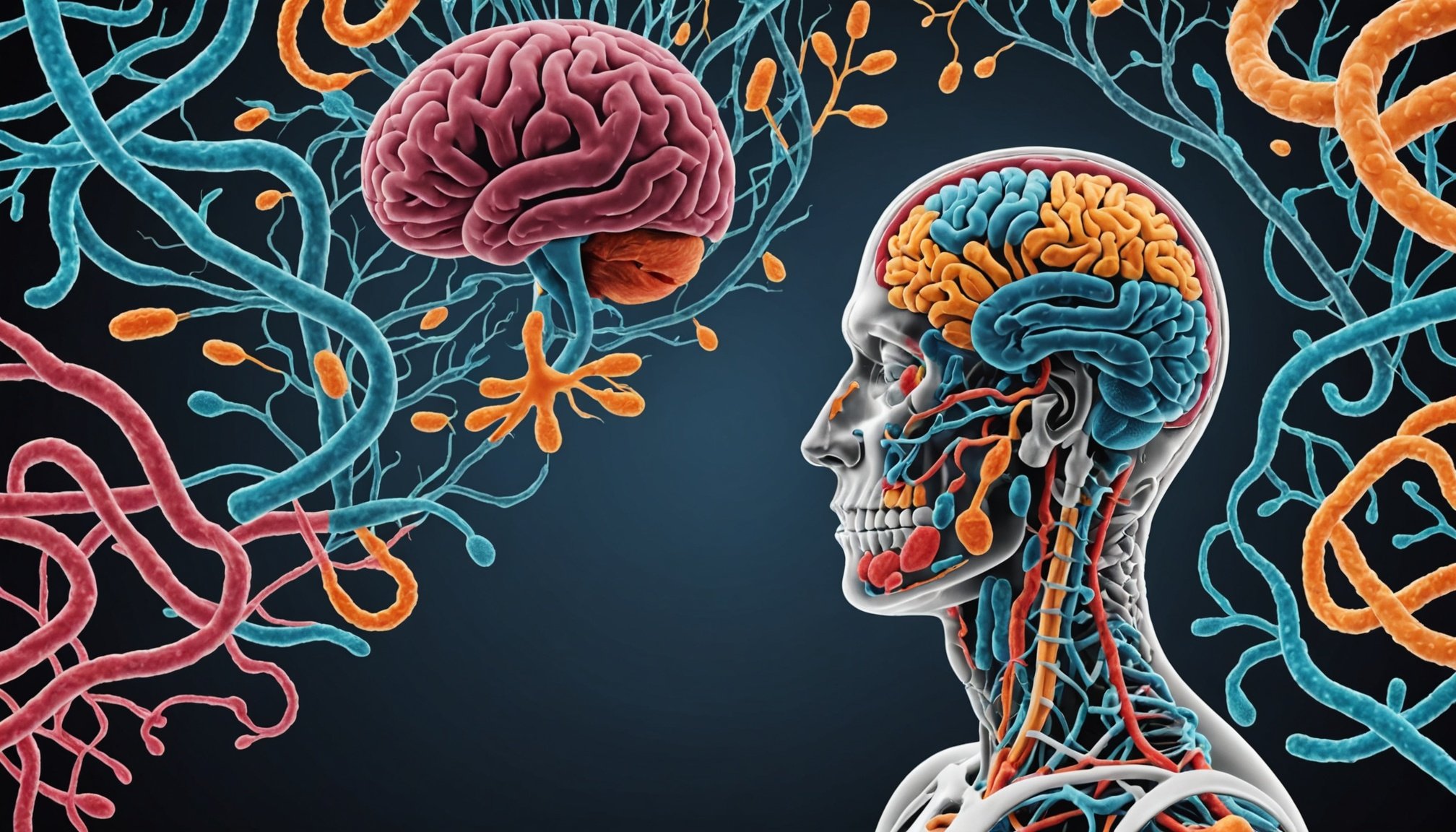In recent years, the understanding of the brain and its connection to the body has expanded beyond traditional neurological pathways. Emerging research indicates that the gut microbiota—the complex community of microorganisms residing in our intestines—plays a crucial role in influencing mental health. With a growing number of studies published on platforms like Google Scholar, PubMed, and CrossRef, the intricate link between gut microbiome and mental disorders such as depression and anxiety is gaining attention. This article delves into the relationship between gut bacteria and brain function, exploring how this connection may affect mental health, and the implications for patients and healthcare systems.
Keywords: gut microbiota, mental health, depression, anxiety, brain, study
Also read : How can family dynamics influence the management of chronic diseases?
The Gut-Brain Axis: A Bidirectional Communication Pathway
The term “gut-brain axis” may sound like the latest buzzword, but it represents a sophisticated, bidirectional communication network between the central nervous system and the enteric nervous system. This communication is facilitated through a complex interplay of neural, hormonal, and immunological signals.
The Role of Gut Microbiota
Gut bacteria are more than just passive residents; they actively produce neurotransmitters and metabolites that can influence the brain’s function. Studies have revealed that specific bacterial strains in the gut can modulate the production of serotonin, a neurotransmitter closely associated with mood regulation. This means that any disruption in the balance of gut bacteria might have direct consequences on mental well-being.
Also read : What are the most common misconceptions about mental health treatment?
Microbial Influence on Mental Disorders
Research highlighted in journals available through PubMed and CrossRef points to a fascinating correlation between gut dysbiosis—an imbalance in gut microbiota—and mental disorders such as depressive symptoms and anxiety. For example, some studies have observed a significant presence of specific bacterial strains in individuals with depression compared to those without.
The interplay between gut bacteria and mental health emphasizes the potential for innovative therapeutic approaches targeting the microbiome to manage mental disorders.
Scientific Studies and Evidence
Scientific inquiry into the gut-brain connection has surged, with a plethora of studies exploring this dynamic relationship. Platforms like Google Scholar and PubMed are replete with research papers investigating the effects of gut microbiota on mental health, offering a wealth of evidence and insights.
Key Research Findings
-
Microbiota Composition and Mental Health: A groundbreaking study published in a renowned scientific journal assessed the microbiota composition of individuals with depression and found marked differences in microbial diversity compared to healthy subjects. This variation suggests a potential biomarker for diagnosing mental disorders.
-
The Bacterial Response to Stress: Another study highlighted the gut microbiota’s role in the body’s stress response. Participants with balanced microbiota exhibited lower levels of stress-induced anxiety, reinforcing the gut’s role in modulating the system‘s stress response.
-
Probiotic Intervention: Clinical trials evaluated the effects of probiotics—live beneficial bacteria—on mental health. Participants who consumed specific probiotics showed reduced symptoms of depression and anxiety, sparking interest in their therapeutic potential.
Implications for Mental Health Treatment
The burgeoning body of research underscores the potential for microbiome-targeted therapies in treating mental disorders. As more studies fill the pages of Google Scholar and PubMed, the healthcare community is paying closer attention to the gut-brain connection’s clinical relevance.
Potential Mechanisms Driving the Gut-Brain Connection
Understanding the mechanisms behind the gut-brain connection is vital for appreciating how gut microbiota can influence mental health. Scientists are piecing together the puzzle, shedding light on the various pathways through which gut bacteria can impact brain function.
Neurotransmitter Modulation
The gut microbiota’s influence on neurotransmitters is one of the primary mechanisms through which it affects mental health. Gut bacteria can produce neurotransmitters like serotonin, dopamine, and gamma-aminobutyric acid (GABA), which play critical roles in mood regulation and emotional well-being. This microbial production can directly influence mental states, with imbalances potentially leading to depressive or anxious symptoms.
Immune System Interaction
Another significant pathway is the interaction between the gut microbiota and the immune system. The gut is home to a substantial portion of the body’s immune cells, and gut bacteria can modulate immune responses. An overactive immune response, often triggered by gut dysbiosis, can lead to systemic inflammation—a condition closely linked to mental health disorders like depression.
The Vagus Nerve Connection
A vital physical link in the gut-brain axis is the vagus nerve, a direct communication highway between the gut and the brain. Microbial metabolites and signals can influence vagus nerve activity, sending messages from the gut to the brain and affecting mood and cognition.
These mechanisms highlight the sophisticated ways in which gut microbiota can potentially influence mental well-being and offer pathways for targeted interventions.
Future Directions and Implications
The potential to leverage the gut-brain connection in therapeutic settings is an exciting frontier in healthcare. As research continues to illuminate the complex interplay between gut microbiota and mental health, the prospect of novel treatments becomes increasingly tangible.
Therapeutic Innovations
Developing probiotic and prebiotic formulations tailored to individual microbiome profiles could revolutionize the treatment of mental health disorders. These interventions aim to restore microbial balance, potentially alleviating symptoms of depression, anxiety, and other mental health conditions.
Personalized Medicine
The future may see a shift towards personalized medicine, where treatments are customized based on the patient’s unique microbiome composition. By analyzing a patient’s gut bacteria, healthcare providers could develop tailored treatment plans that address specific microbial imbalances affecting mental health.
Challenges and Considerations
While the potential is vast, challenges remain. The complexity of human microbiota, coupled with inter-individual variability, poses significant hurdles. Moreover, understanding the long-term effects and safety of microbiome-targeted therapies is crucial.
A New Paradigm in Mental Health Care
The integration of microbiome research into mental health care represents a new paradigm, offering hope for more effective treatments. As more studies are published and evidence mounts, the healthcare community must adapt to these insights to improve patient outcomes.
Conclusion: The evidence supporting the relationship between gut microbiota and mental health is compelling. With continued research, the promise of microbiome-based therapies beckons, offering a potentially transformative approach to treating mental disorders. As we navigate this evolving landscape, the role of gut bacteria in mental well-being remains a critical area of exploration.
Keywords Recap: gut microbiota, mental health, depression, anxiety, brain, study, system, bacteria.











